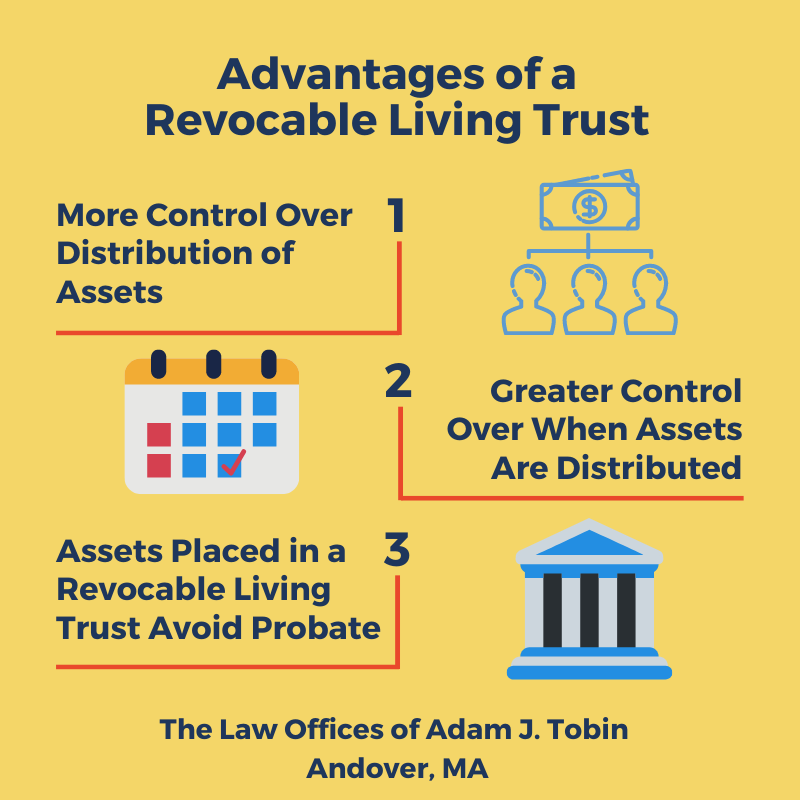Seven Steps for Creating an Estate Plan
February 14, 2020Elder Law and Alzheimer’s Disease: Tips and Resources
April 10, 2020There are many aspects of end-of-life planning that people don’t understand fully. None seems to be as fraught with false assumptions as the revocable living trust. This vehicle can be exceptionally beneficial for many people in a variety of different lifestyles.
People often think that a will is the only legal document they need to protect their assets. That’s simply not the case and not always the best option for your situation. There are limited ways that a will can protect your assets, and they don’t offer any remedies for situations where you might continue living for a long period after being rendered unable to make financial directives on your own behalf.

A qualified elder law attorney can go over your own family dynamic and financial situation with you in order to decipher the best vehicles for your estate. There are laws specific to Massachusetts that you should be aware of to plan for all the scenarios that can happen in your lifetime, and after your death.
In this post, we’ll discuss the revocable living trust and three of the top advantages this type of protection offers.
What Is a Revocable Living Trust?
The key thing that you should know about a revocable living trust is that it goes into effect the minute it is signed. In this way, the revocable living trust can help manage assets and funds during the person’s life and can fund them until their death. The person who creates a trust can make changes as long as they are mentally competent.
There are some limitations involved with a living trust. For instance, it does not offer a way to name guardians of minor children. That would be accomplished with a will. In many cases, you might need both a living trust and a will.
More Control Over Distribution of Assets
A revocable living trust gives you absolute control over who your assets are distributed to at the time of your death. This is not true of a will. Many people mistakenly believe that they can name beneficiaries in a will and it will be honored at the time of their death. Unfortunately, that is not always the case. For example, a spouse can legally claim a large portion of your estate in Massachusetts, even if he or she is not named in a will.
In situations where there are children from a previous marriage or the person marries for a subsequent time late in life, you may not want the current spouse to receive such a large portion of the estate. A revocable living trust allows the assets to pass directly to who is named in the trust.
Greater Control Over When Assets Are Distributed
With a revocable living trust, you can set specific timelines for when beneficiaries receive their inheritance and name trustees to oversee their inheritance until they reach those set benchmarks. Typically, funds are released to beneficiaries when they reach a set age or accomplish a life goal. In these scenarios, the beneficiaries are able to access the funds for certain needs, such as tuition or healthcare costs.
Assets Placed in a Revocable Living Trust Avoid Probate
Assets in a revocable living trust do not need to go through the probate process, which can be costly and time-consuming. These funds will pass directly to the beneficiaries without delay.
A revocable living trust offers excellent protection for assets and allows you more control over how your estate is managed during your lifetime and after your death.



